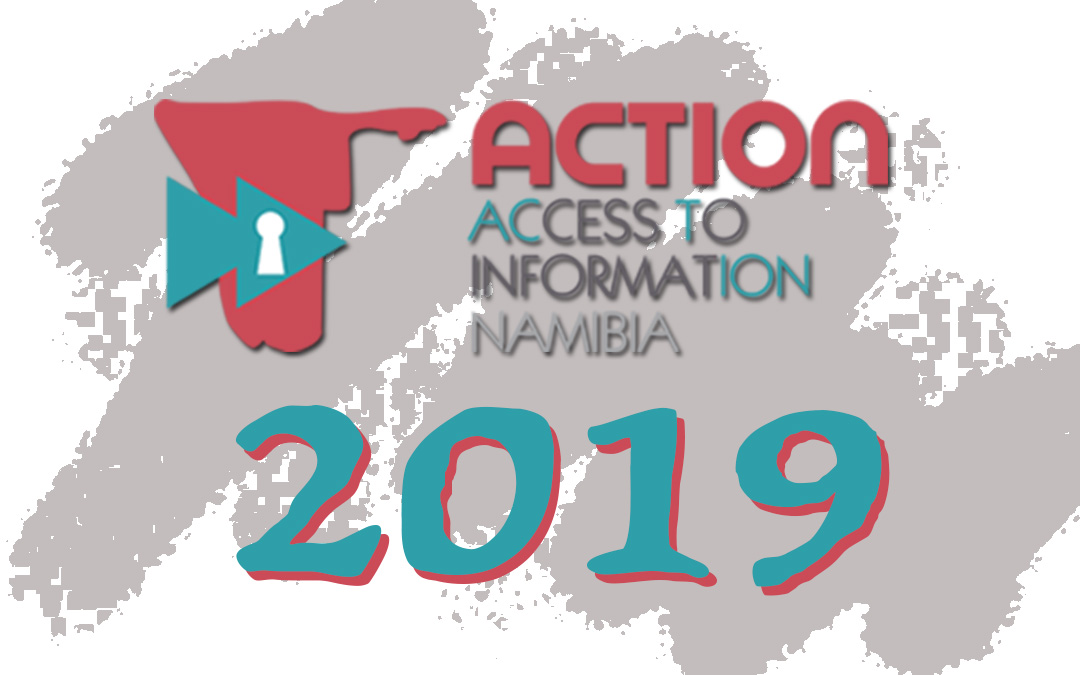BY FREDERICO LINKS – No doubt 2019 will be both a challenging and exciting year – challenging in that Namibia continues to face tough economic circumstances and exciting in that it’s an election year.
But first, a brief review of 2018.
ATI law promises not kep
In early 2018, shortly after taking office in a Cabinet reshuffle, new information minister Stanley Simataa indicated in a meeting with ACTION Coalition representatives that finalising the ATI bill would be a priority for 2018.
Unfortunately, nothing came of this in the end.
ATI deficits become increasingly glaringApartheid censorship law used for attempted media muzzling
Arguably the most striking incident on the ATI landscape during the year was the attempted muzzling of the media by the Namibia Central Intelligence Service (NCIS), using the apartheid-era Protection of Information Act of 1982. This attempt ultimately failed, but showed how state actors were reluctant to adopt transparent governance processes and tended to secrecy, especially when corrupt practices boil to the surface.
Namibia lost it’s number one ranking
And 2018 was also the year in which Namibia lost its long held top ranking on the World Press Freedom Index, dropping to number two behind Ghana.
Contributing to this drop was the concerning emergence of repressive tendencies and statements amongst political and government actors, suggesting that democratic practice and the field for free expression were deteriorating.
Ruling party politicians told to shut it
Exemplifying this decline in free expression was a late 2018 public admonishment by ruling party senior leaders of the sometimes critical outspokenness of junior parliamentarians. It was a clear indication again of the culture of silence that shrouds much of the ruling party’s activities, and which has also infiltrated government systems and processes.
Troubling proposals dropped, new ones in the works
On a positive note, in 2018 the long standing proposed cyber crime framework, that included freedom of expressing and ATI chilling features, was abandoned, and a new process of redrafting appropriate communications frameworks was initiated in the second half of the year. These processes will reportedly be finalised in 2019 and draft bills presented some time towards the second half of the year.
On the whole, 2018 was a mixed, but generally trending negative, year for ATI.
So what does all this mean for 2019?
The year of ‘accountability’
Elections will overshadow much of 2019, presenting an opportunity for civil society to engage more assertively with politicians on certain issues of national importance – such as ATI – as well as influencing public sentiment and political campaigns.
With good governance in government standing as a prominent sore point, transparency and accountability will remain serious concerns in the public discussion space, which could present an opening to position free speech and ATI related matters as fundamental election issues.
In this vein, 2019 could potentially see the political space fracture more divisively as misinformation and disinformation come to play powerful roles on the electoral and political landscapes.
This could considerably muddy the waters and could lead to acts of state reprisal, which could set a troubling tone going forward.
In many respects, Namibia continues to be poised, whether for good or bad to unfold on different fronts. And election years are usually years of low productivity on the legislative front.
This means we probably shouldn’t expect much in the way of a proposed ATI framework being finalised, as politicians and their government associates look to pluck low hanging fruit in order to score political points with the electorate in what could be a tense election year.
What all this could mean for freedom of expression and ATI campaigners and activists is a both a challenging and exciting year to hold all sorts of actors accountable for what unfolds on the electoral and political landscapes.
And so we get underway …
/Ends

